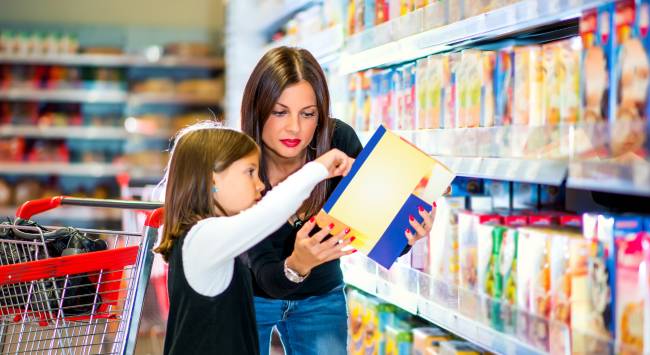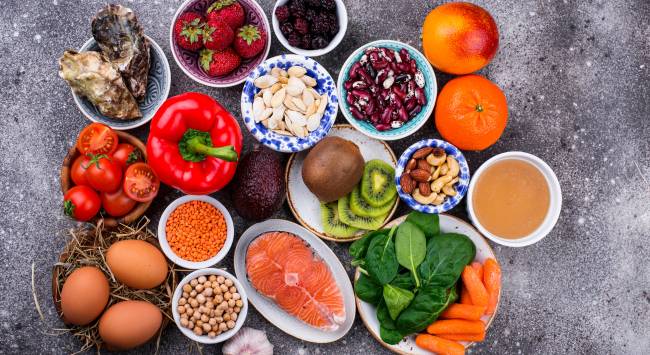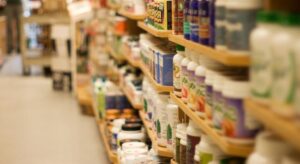
What is Clean Label in Food Production?

In recent years, the term “clean label” has gained significant attention in the food industry, driven by consumers’ growing demand for healthier and more transparent products.
But what exactly does it mean? Essentially, clean label refers to food production that focuses on using natural, familiar, and simple ingredients while avoiding artificial ingredients, additives, or preservatives.
This trend is reshaping the way food manufacturers develop and market their products to meet the evolving preferences of health-conscious customers. In this blog post, we’ll delve deeper into what clean label is all about; from its benefits and challenges to achieving it in your food production process.
Key Takeaways
- The clean label refers to food production that uses natural and simple ingredients while avoiding artificial additives or preservatives, meeting the demand for healthier and more transparent products and packaged foods.
- The clean label does not have a regulatory or legal definition; rather, it encompasses the consumer’s perception of products and the marketing strategies employed by food companies.
- Consumers perceive clean-label foods as those without undesirable ingredients with short ingredient lists and using familiar, recognizable components. This trend promotes transparency and builds trust between customers and food manufacturers.
- Embracing clean labeling offers several benefits for food brands, including improved product quality, marketability, sustainability, and responsible production practices while addressing challenges such as higher costs in sourcing processes or recipe modifications. By providing clarity on labels about what is in their products’ formulation through simplicity and naturalness – companies can satisfy consumers’ growing needs.
Understanding Clean Label In Food Production

Consumers perceive “clean label” food products as those without undesirable ingredients, with short ingredient lists, and using familiar ingredients easy to understand.
Definition And Perception By Consumers
The concept of clean labels in food production revolves around meeting the expectations of today’s health-conscious consumers. It primarily refers to the formulation and presentation of food products that focus on simplicity, familiarity, and transparency.
Consumer perception plays a significant role in driving the clean label movement. For instance, when people see short ingredient lists with easy-to-recognize components like “organic apples” or “whole grain oats,” they tend to associate these products with higher quality and nutritional value compared to those containing unfamiliar chemical names or synthetic elements.
Labeling Of Food Without Undesirable Ingredients
Clean labeling involves listing only familiar and simple ingredients that are free of undesirable or unnatural additives, such as artificial preservatives, flavors, and colors.
Food brands need to ensure that their products contain clean-label ingredients to meet consumers’ demand for transparency and clarity regarding what they consume. This includes simplifying the ingredient list by using natural options like herbs instead of synthetic ones.
For example, a product can be labeled as “No Artificial Preservatives” or “Made with Real Ingredients” to assure customers of its purity and safety standards.
Short Ingredient Lists And Familiar Ingredients
Clean labeling in food production relies heavily on short ingredient lists and familiar ingredients that are easy to understand by consumers. This trend emerged as a response to the increasing demand for healthier, safer, and more transparent food products by customers.
Short ingredient lists emphasize the use of natural and minimally processed ingredients without artificial additives or preservatives.
Familiar ingredients also play an essential role in clean labeling since most customers prefer recognizable foods over synthetic or unnatural ones. Familiarity with the source, processing methods, and supply chain of ingredients increases transparency and accountability throughout the food production process.
As such, more food brands opt to feature their local suppliers on packaging labels highlighting transparency further.
The Importance Of Clean Labeling

Clean labeling is important as it meets consumer demand for transparency and clarity, promotes health benefits by avoiding artificial additives and preservatives, and contributes to sustainability and responsible production.
Meeting Consumer Demand For Transparency And Clarity
The clean label trend is largely driven by consumer demand for transparency and clarity in the food they consume. Consumers want to know what they are putting in their bodies, and they are increasingly concerned about the safety of food additives and preservatives.
Transparency on a food label is crucial for building trust with customers, and clean labeling can help strengthen the brand’s reputation as a provider of safe and healthy options. Customers appreciate honesty from companies, so being upfront about ingredients can also improve overall customer loyalty.
For example, The Clean Label Project awards program has gained popularity among consumers as it highlights brands that meet stringent purity and safety standards. Food brands should consider providing allergen-free labels or information on pesticide usage to accommodate health-conscious buyers’ concerns over product purity.
Health Benefits Of Avoiding Artificial Additives And Preservatives
Choosing to avoid artificial additives and preservatives in your food production can have a significant impact on the health benefits of your products. These synthetic chemicals can be found on food labeling and are often added to prolong shelf life or enhance flavor, but they have been linked to negative health effects such as allergies, hyperactivity, and even cancer.
In addition to reducing health risks for consumers, avoiding artificial additives and preservatives in your food production can also improve the sustainability of your business. In Clean Labelling, artificial colorings can be replaced with plant extracts or concentrated juices like beetroot or carrot juice concentrate.
Many of these synthetic chemicals require extensive processing and energy consumption during production, contributing to environmental damage.
Overall, embracing clean label principles by choosing natural ingredients without artificial additives or preservatives offers numerous benefits for food brands looking to tap into the growing demand for healthy and environmentally-conscious products.
Promoting Sustainability And Responsible Production
Clean labeling is not just about satisfying customer demand for healthier products, but also promoting sustainability and responsible production. Consumers are increasingly aware of the impact that food production has on the environment, as well as ethical issues surrounding animal welfare and fair labor practices.
In addition to appealing to eco-conscious consumers, there are economic benefits associated with sustainable food production. A study conducted by Nielsen found that products with sustainability claims in their packaging accounted for nearly $114 billion in sales globally in 2018.
Sustainable sourcing can also establish long-term relationships with suppliers who prioritize quality over quantity and often have a shared interest in preserving natural resources.
Achieving Clean Label In Food Production

To achieve clean labels in food production, brands should focus on ingredient sourcing and selection, modifying recipes to eliminate synthetic additives or preservatives, and collaborating with suppliers and consumers to ensure transparency.
Ingredient Sourcing And Selection
Achieving clean labels in food production requires careful consideration of ingredient sourcing and selection. The trend towards simple, natural ingredients has led to a greater focus on responsible sourcing practices.
To achieve this, some brands have opted for organic and non-GMO ingredients that meet certification standards for purity and sustainability. Others have collaborated with farmers who follow ethical farming practices, which reduces the risk of contamination while promoting local agriculture.
For example, Kellogg’s recently announced its plan to transition all of its corn flakes production in Europe to sustainably-sourced corn by 2025.
Recipe Modifications
To achieve a clean label in food production, recipe modifications are necessary. This involves using natural ingredients and avoiding artificial additives or preservatives that can affect the quality of the end product.
Recipe modifications may also involve tweaking product formulations to comply with allergen-free labeling and health-conscious trends such as non-GMO, organic, or whole foods.
Brands must ensure that any changes do not compromise taste or nutritional value.
Successful implementation of recipe modifications can enhance marketability by meeting consumer demand for transparency and clarity while promoting sustainability and responsible production practices.
Collaboration With Suppliers And Consumers
Collaboration with suppliers and consumers is crucial when it comes to achieving clean-label food production. Working together, food brands can identify the most sustainable and ethical sources for their ingredients, ensuring that they are free from synthetic additives.
This collaboration can extend beyond just ingredient selection. Brands can work with suppliers to develop new technologies or processes that support natural preservation methods and avoid the use of preservatives altogether.
Clean Label Certifications, Awards, And Examples
Clean label certifications, such as The Clean Label Project and other industry standards, recognize products that meet specific criteria for purity and safety. These programs often focus on factors like the absence of heavy metals or pesticides in food production.
Additionally, natural ingredients, free from additives and preservatives, are becoming increasingly popular among consumers who prioritize health-conscious and sustainable options.
The Clean Label Project
The Clean Label Project is an award program that recognizes brands for product purity, safety, and transparency. As concerns about consumer health and wellness continue to grow, the demand for clean eating options has driven many food brands to adopt cleaner ingredient labels.
The Clean Label Project works with retailers to evaluate products based on their ingredients and production processes, rating them from one to five stars depending on how “clean” they are.
This independent third-party assessment provides consumers with a clearer picture of what’s in the food they’re buying, while also helping brands improve their products’ quality and marketability.
Other Certifications And Standards In The Industry
There are several certifications and standards in the food industry that brands can consider to achieve clean labeling:
- USDA Organic: This certification ensures that food products are produced without the use of synthetic fertilizers, pesticides, or genetic engineering. It also requires that animals are raised by specific animal welfare standards.
- Non-GMO Project Verified: This label ensures that a product is free from genetically modified organisms (GMOs), which are often associated with health and environmental concerns.
- Whole Foods Market Responsibly Grown: This certification program assesses the environmental and social impacts of farming practices used to grow fresh produce, flowers, and plants.
- Fair Trade Certified: This certification ensures that farmers and workers are paid fairly for their products, promoting sustainable livelihoods and communities.
- Gluten-Free Certification Organization (GFCO): This certification verifies that products contain less than 20 parts per million (ppm) of gluten, making them safe for people with celiac disease or gluten sensitivity.
- Rainforest Alliance Certified: This certification promotes sustainable agriculture and forestry practices while protecting biodiversity and supporting local communities.
By obtaining these certifications, brands can communicate their commitment to responsible production practices and provide consumers with more information about the foods they are choosing to consume.
Naturally Derived Ingredients
Naturally derived ingredients are a key component of clean labeling in food production. These types of ingredients are free from synthetic chemicals and are sourced from natural sources such as plants, animals, or minerals. Here are some facts that food brands need to know about using naturally derived ingredients in their products:
- Naturally derived ingredients can be used as substitutes for synthetic chemicals and preservatives, making products healthier and cleaner.
- Natural ingredients can enhance the flavor profile of foods without the need for artificial flavorings or enhancers.
- There is growing interest among consumers in natural and organic foods, which often feature naturally derived ingredients.
- Using naturally derived ingredients supports sustainable agriculture by encouraging responsible farming practices and reducing the use of chemical pesticides or fertilizers.
- Popular naturally derived ingredients include honey, maple syrup, stevia, fruit extracts, vegetable oils, and spices.
- Some naturally derived ingredients provide health benefits beyond basic nutrition; for example, turmeric has anti-inflammatory properties while ginger may help with digestion and nausea relief.
By incorporating naturally derived ingredients into their products, food brands can meet consumer demand for transparency and clarity while also promoting healthier and more sustainable food choices.
Free From Additives And Preservatives
Clean labeling involves omitting artificial additives and preservatives from food products to meet consumer expectations for healthier and more natural options. Here are some key points regarding the importance of being free from additives and preservatives in food production:
- Preservative – free foods tend to be perceived as fresher and safer by consumers.
- Some common artificial preservatives, such as nitrates and sulfites, have been linked to health concerns like allergies, migraines, and cancer.
- Avoiding additives like artificial colors and flavors can help products align with clean label standards by promoting simplicity, familiarity, and transparency.
- Reducing or eliminating preservatives can present formulation challenges for manufacturers, but it can also lead to opportunities for innovation with natural alternatives like vinegar or citrus extracts.
- Consumers who are looking to avoid certain ingredients often look for allergen-free or “free-from” labeling on products that exclude specific allergens like soy, dairy, gluten, or nuts.
By focusing on clean label requirements that prioritize the use of natural ingredients without synthetic additives or preservatives, brands, and food companies can appeal to health-conscious consumers who prefer minimally processed foods that promote transparency in their product selection.
Sustainable And Ethical Claims
Food brands can make sustainable and ethical claims as part of their clean-label marketing. This includes highlighting the sustainability of ingredients and production processes, as well as ethical practices surrounding labor, animal welfare, and environmental impact. Here are some ways to make sustainable and ethical claims about your products:
- Using sustainably-sourced ingredients: Highlight any certifications or practices that support the sustainability of your ingredient sourcing, such as Fair Trade Certified or Rainforest Alliance certification.
- Promoting environmental responsibility: Use packaging materials that are recyclable or made from sustainable sources, and minimize waste in production facilities.
- Supporting ethical labor practices: Ensure fair wages and safe working conditions for all employees involved in your production process, including those in the supply chain.
- Prioritizing animal welfare: Consider using meat and dairy products from animals raised without antibiotics or hormones, free-range eggs, or plant-based alternatives.
- Reducing carbon footprint: Implement energy-efficient equipment and transportation methods to reduce greenhouse gas emissions from production.
By incorporating sustainable and ethical claims into your clean labels, you can appeal to consumers who prioritize social responsibility and environmentalism when making purchasing decisions.
To know about What is a Private Label Product? Learn this.




